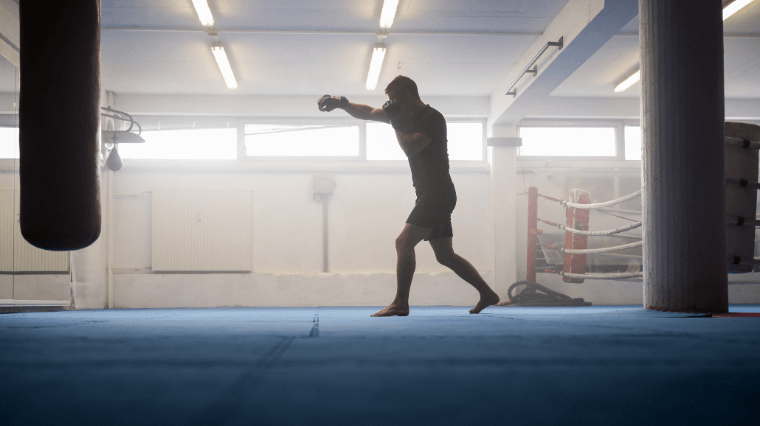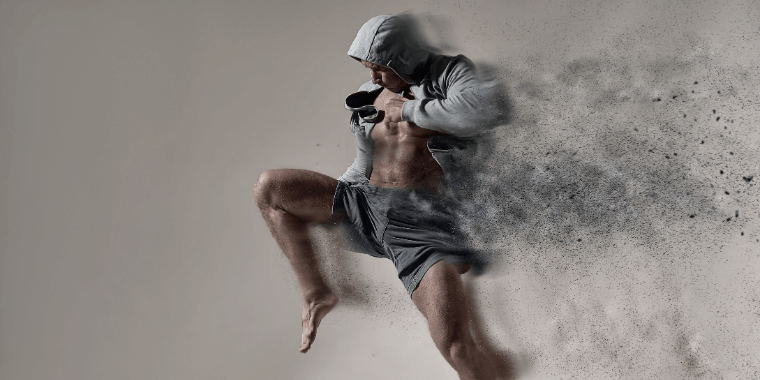
Table of Contents
Subscribe & Get Yours Goal Setting Template for 2025
The Role of Sports Psychology in MMA Training
Sports psychology is the study of how mental and emotional factors affect performance in sports. In MMA, athletes often focus on physical skills, but the mind plays a crucial role too. This is where sports psychology helps fighters enhance their mental game. By developing mental resilience and focus, fighters can tackle the psychological challenges of the sport. Mastering these mental strategies can make the difference between victory and defeat in the high-stakes world of MMA.
Why is Sports Psychology Important in MMA?
Fighting in MMA requires mental strength as much as physical power. Athletes face anxiety, stress, and fear. Sports psychology teaches techniques to manage these emotions, helping fighters stay calm and focused. For instance, mental conditioning techniques like visualization can significantly enhance an athlete’s performance. For more on the importance of mental training.
Key Techniques in Sports Psychology for MMA
- Visualization
Visualization involves imagining a fight scenario and visualizing success. Fighters use this to mentally prepare for upcoming bouts. It builds confidence, reduces anxiety, and prepares their mind for battle. You can read about Visualization & How to use it to get success. - Goal Setting
Setting clear and achievable goals helps fighters stay motivated. Sports psychologists work with athletes to create both short-term and long-term goals. This keeps fighters focused on progress and improvement. - Breathing Techniques
Deep breathing helps fighters relax under pressure. When a fighter gets nervous, their breathing can become shallow, increasing tension. Controlled breathing helps manage nerves and stay composed.

How Sports Psychology Helps in Fight Preparation
Before stepping into the cage, many fighters feel immense pressure. Sports psychology helps them manage this pressure, stay calm, and perform their best when it matters. Techniques such as cognitive restructuring allow fighters to shift their mindset from fear to confidence.
Additionally, mindfulness practices can improve focus and reduce the impact of distractions, ensuring that fighters remain sharp and present during their bouts. By integrating these mental strategies, athletes can enhance their overall performance and resilience in high-stress situations.
Case Study: The Impact of Sports Psychology on UFC Fighter Michael Bisping
- Background
Michael Bisping, a renowned UFC middleweight champion, faced numerous challenges throughout his career, including injuries and setbacks. Bisping’s journey to the UFC title was marked by intense competition and personal struggles. One key factor in his success was his use of sports psychology. - Challenges Faced
Bisping’s career was fraught with obstacles. He faced several defeats and had to overcome significant injuries, including a detached retina that almost ended his career. These challenges led to periods of doubt and frustration, affecting his performance and mental well-being. - Sports Psychology Intervention
To address these challenges, Bisping worked with sports psychologist Dr. Jason Wersland. The focus was on several key areas:- Mental Resilience: Dr. Wersland helped Bisping develop mental resilience through cognitive restructuring. This involved changing Bisping’s thought patterns to foster a more positive mindset, which was crucial for overcoming setbacks and maintaining focus.
- Visualization Techniques: Bisping used visualization techniques to mentally prepare for fights. By imagining successful outcomes and visualizing his opponents’ movements, he enhanced his performance and boosted his confidence.
- Stress Management: Stress management techniques, including deep breathing and mindfulness, helped Bisping stay calm under pressure. This was particularly important during high-stress moments, such as title fights or recovery from injuries.
- Outcome
With the support of sports psychology, Bisping’s career saw a remarkable transformation. He achieved one of the greatest victories of his career by winning the UFC Middleweight Championship against Luke Rockhold in 2016. This victory was a testament to his physical training and enhanced mental game. Bisping has credited his mental preparation as a crucial factor in his success, highlighting the significant role of sports psychology in overcoming adversity and performing at the highest level.
Conclusion
Sports psychology plays a crucial role in MMA training by addressing the mental and emotional aspects that significantly impact a fighter’s performance. By incorporating techniques such as visualization, goal setting, and breathing exercises, fighters can enhance their mental resilience, manage stress, and maintain focus under pressure. This holistic approach not only prepares athletes for the physical demands of the sport but also equips them with the mental tools needed to excel.
The case study of Michael Bisping illustrates the profound impact that sports psychology can have. His success story underscores how integrating mental conditioning into training can lead to remarkable achievements in the octagon. Overall, sports psychology offers invaluable strategies that help fighters overcome challenges, boost their confidence, and achieve their goals. Embracing these psychological techniques can be a game-changer for any MMA athlete aiming to reach their full potential.

